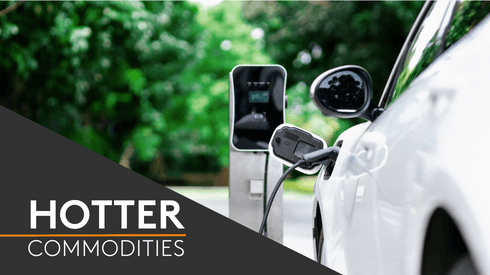Despite having reserves for some critical minerals, such as cobalt and copper, India relies heavily on imports, according to the IEEFA report. The South-Asian country has about 44.9 million tonnes of cobalt ore resources, but there is no domestic cobalt production. Similarly, India has about 163.9 million tonnes of copper reserves, but it still relies on imports to meet its growing demand.
“There is a need for India to invest in resource-rich, friendly nations and minimize its reliance on imports, especially from countries with a potential trade risk in the future,” the report India’s Hunt for Critical Minerals said on October 28.
India’s reliance on imports is likely to persist, and domestic mines within India will take more than a decade to start producing, the report added.
Global lithium demand rose by 30% in 2023, and demand for nickel, cobalt and graphite increased by 8-10%, due to growing solar and wind power capacities, EV sales and stationary battery storage capacities, according to the report. Demand for key minerals is expected to double globally by 2030, the report added.
Being cost-competitive
Several downstream market participants believe that raw material security is not a significant priority for India, Fastmarkets’ editorial and research teams heard during a visit to the country in September.
A focus on maintaining cost competitiveness with other countries, such as China, remains a bigger concern.
“Ultimately, the biggest factor for all our decisions is cost — are we cost-competitive with China?” one battery producer told Fastmarkets during the visit. “If we can’t be cost-competitive, our customers will continue to import the cheaper alternative cells.”
By contrast, in Western countries, battery producers and original equipment manufacturers (OEMs) typically view a lack of government support and a lack of infrastructure as the biggest hurdles for EV and battery adoption.
“EV alternatives must be cost-competitive to their ICE [internal combustion engine] counterparts in India, or further adoption could be a challenge,” one OEM source told Fastmarkets.
“It is not so much the sourcing part; it is the cost part that concerns us. For us, being cost-competitive is quite important,” another market participant said.
The government’s push
Still, the government has made some progress in boosting domestic production by auctioning and selling mineral exploration blocks.
But this may take some time to yield results, some market participants told Fastmarkets.
India relies on imports primarily due to an absence of domestic production and refining capacities for some of these minerals, according to the IEEFA report.
The country has been auctioning critical mineral blocks since late 2023 to transition to clean energy and away from its current reliance on coal power.
The Indian Ministry of Mines announced on Thursday November 7 that it successfully concluded the auction of eight critical mineral blocks, taking the total number of auctioned critical and strategic mineral blocks by the government to 22 blocks. These eight blocks contain deposits of minerals such as cobalt, phosphorite, graphite and vanadium, essential for high-tech and green energy applications.
In June, the government announced that the auction for 14 out of 18 blocks, launched in February, was cancelled. Out of the 14 blocks annulled, five were cancelled as no bids were received, and nine received less than the mandatory requirement of three bids.
“Since India is a developing economy, there still exists a gap of knowledge and expertise in terms of boosting domestic infrastructure, and it may take some time to set up domestic capacities; however, significant steps have been taken by the government in the last seven years to get this going,” a trader source told Fastmarkets.
The Indian government has also pursued the acquisition of critical mineral assets in resource-rich and friendly countries. A government official said in July at an industry event that India was in discussions with African and Latin American countries to increase its reserves for strategic and critical minerals.
A source close to the Indian government told Fastmarkets, “If [the discussions] go through, [it] will have an impact on reducing the supply volatility [that India currently faces]. Moreover, it will help downstream industries and complement the ongoing efforts of the Indian government to support the manufacturing of energy-storage components and systems in India.”
A joint exploration and mining deal is yet to be confirmed, but a similar deal between Khanij Bidesh India Ltd (KABIL) and CAMYEN, an Argentine state-owned company, was signed earlier this year for the exploration and mining of five lithium blocks in Argentina.
KABIL was set up in India in 2019 to identify, explore, acquire and develop critical mineral assets overseas, as well as invest in the sourcing of critical minerals for the domestic market, according to its website.
But some participants said that the government should do more to support the market.
“We have heard from the customer side that the government should step in and be more aggressive in its support for the market to significantly develop,” a source told Fastmarkets.






